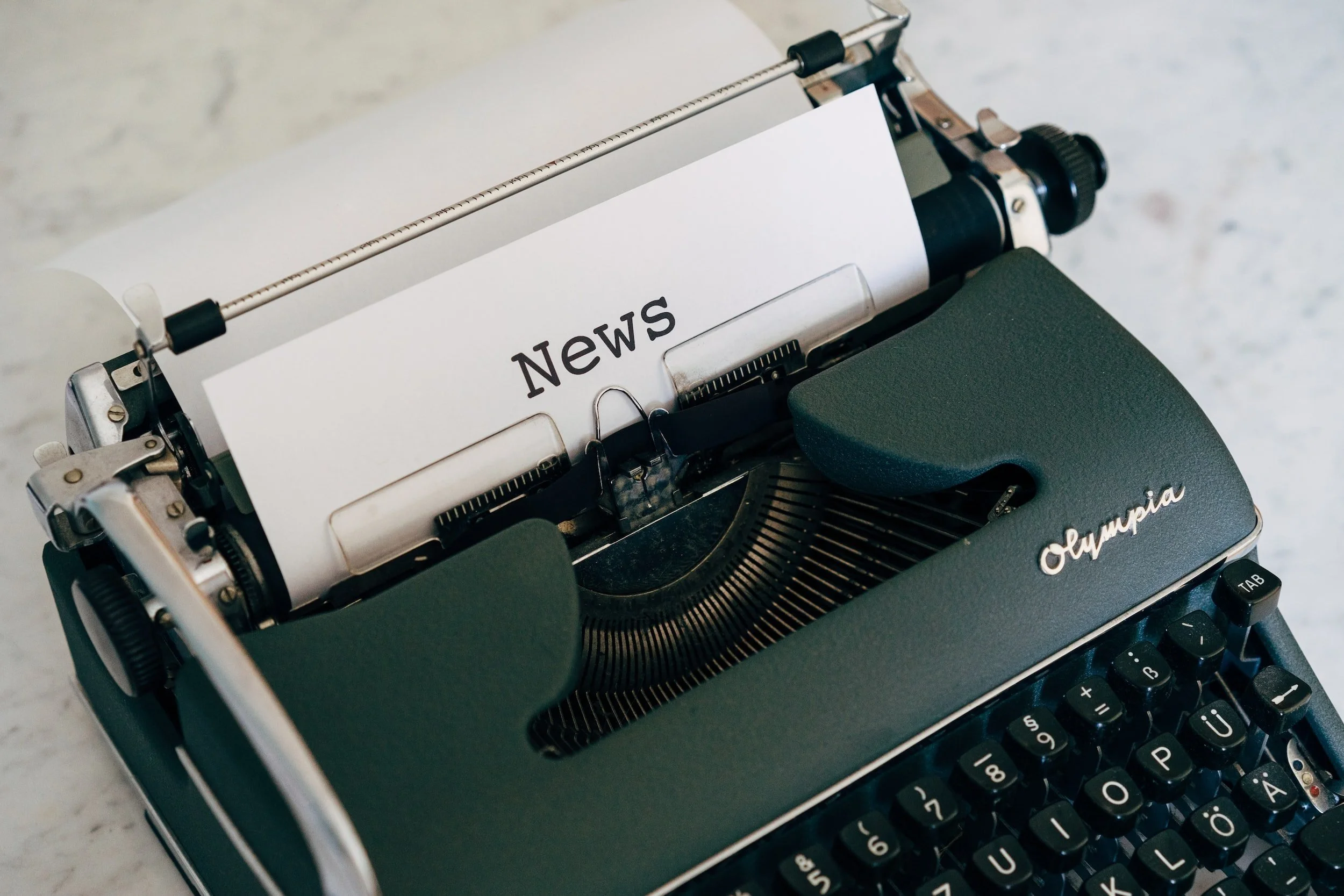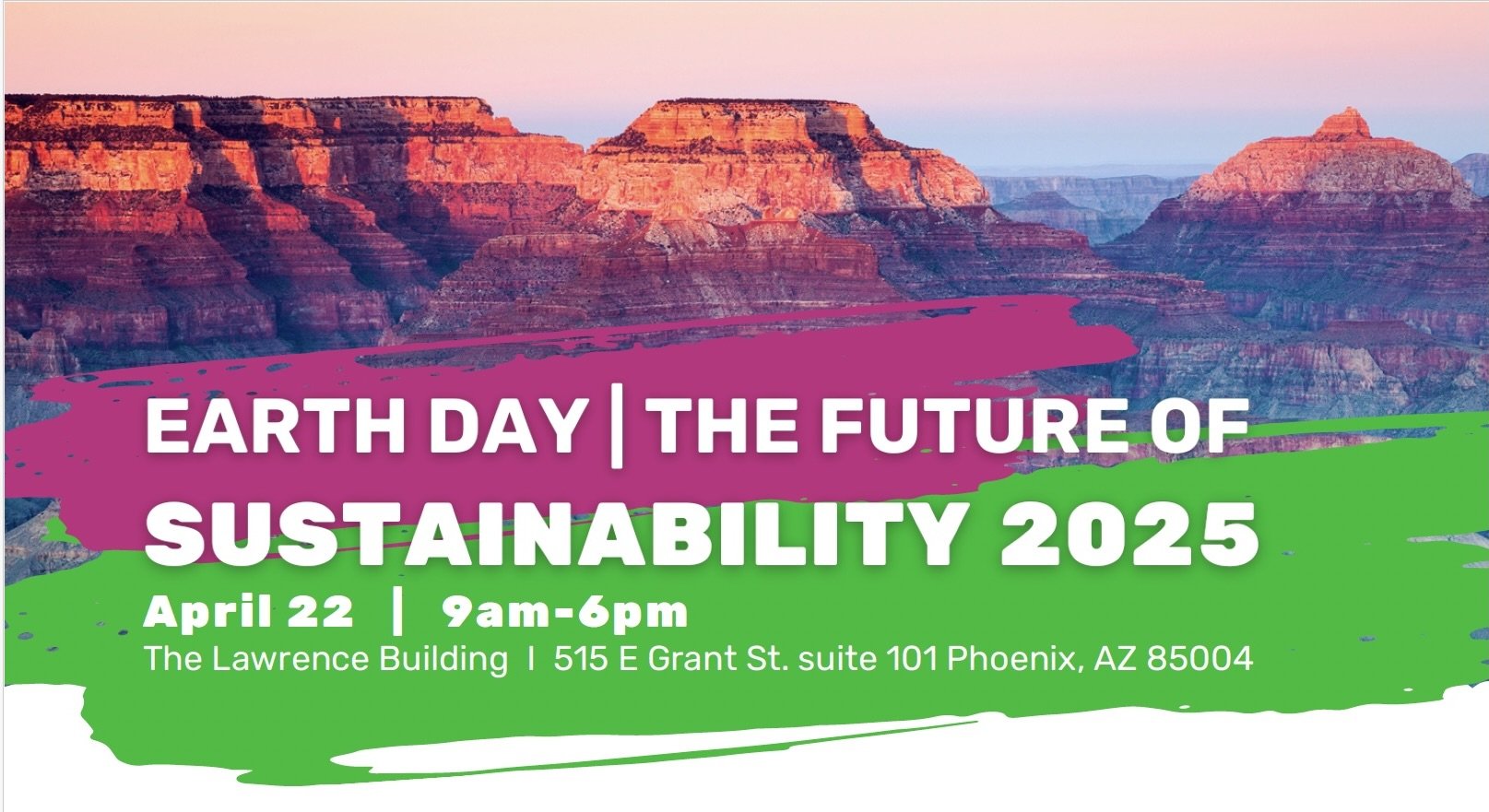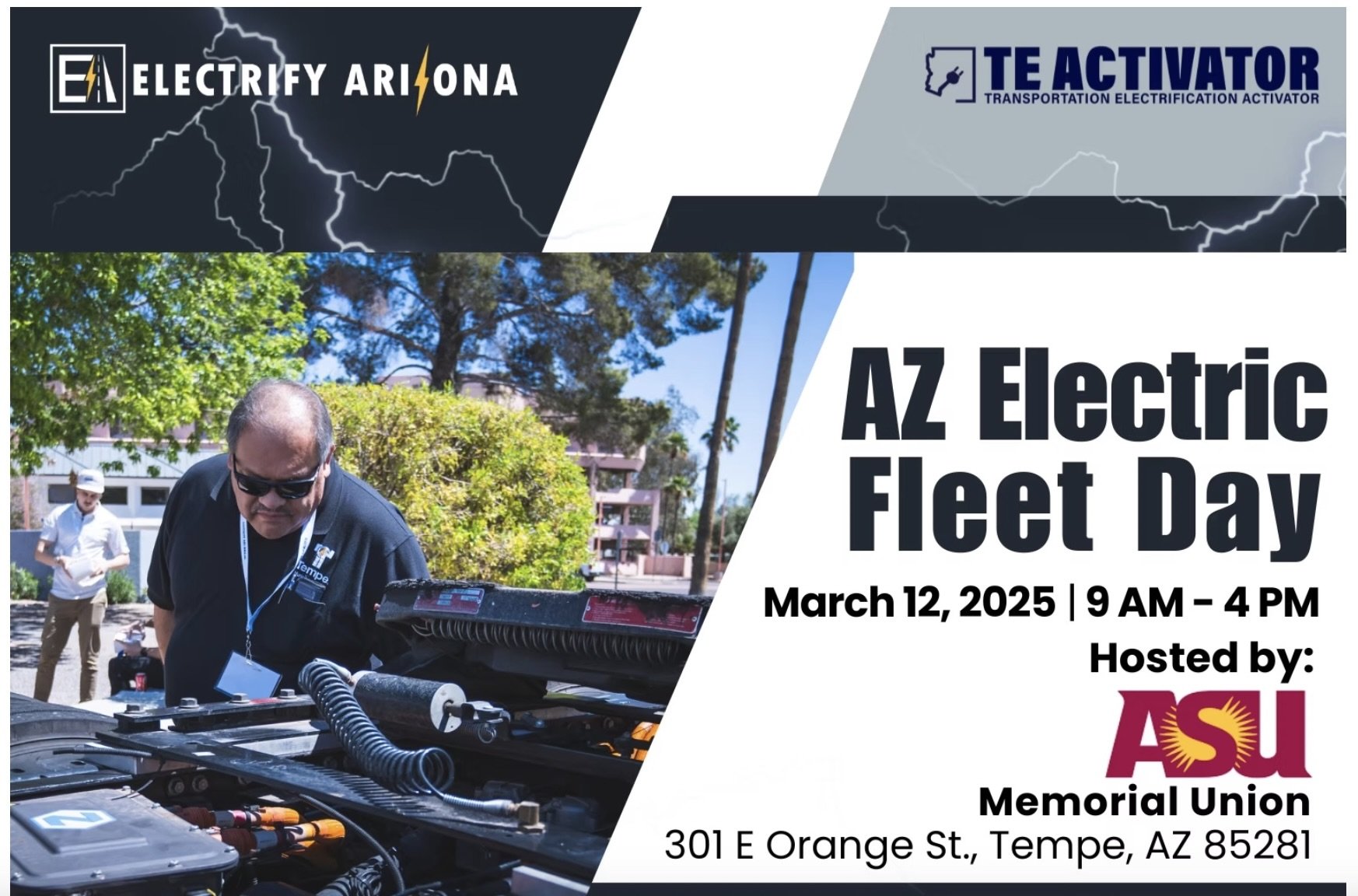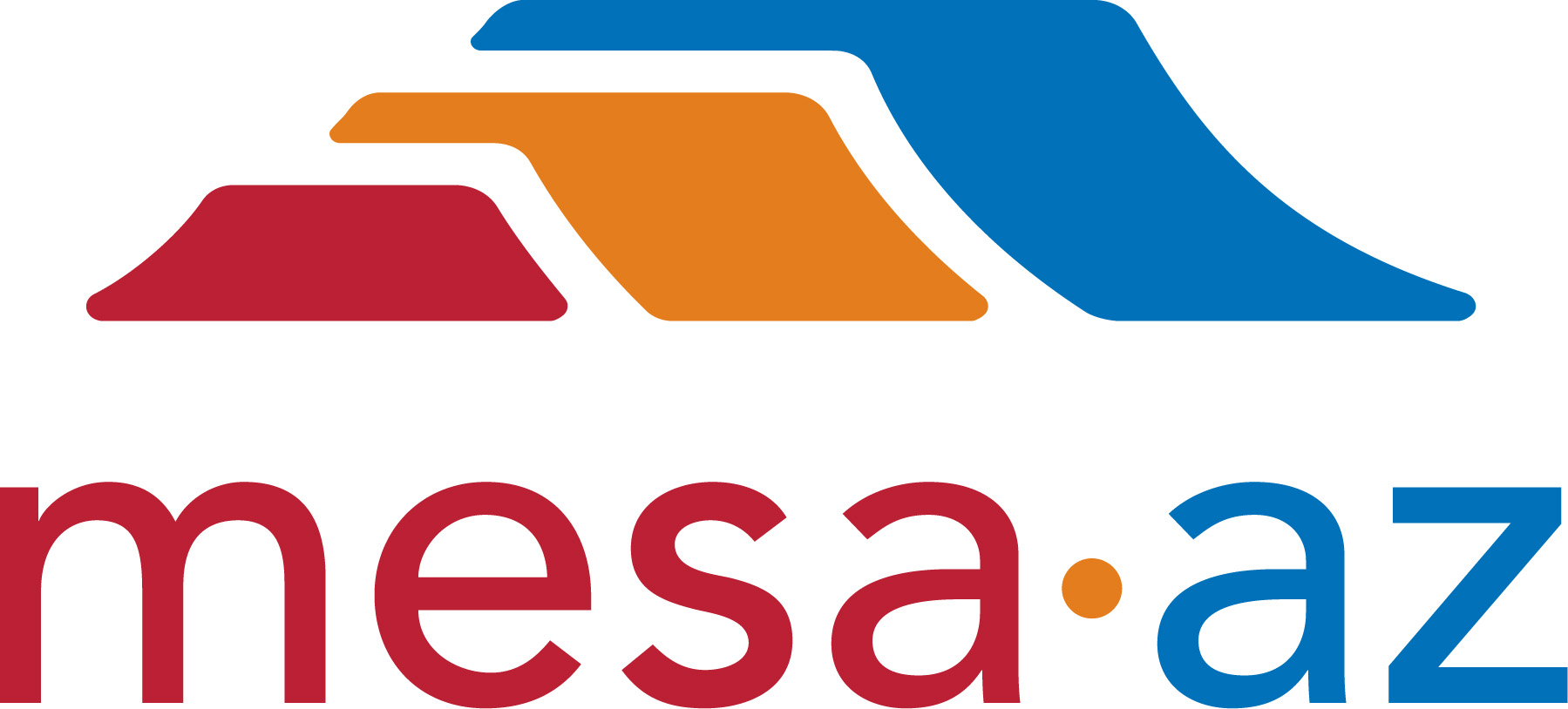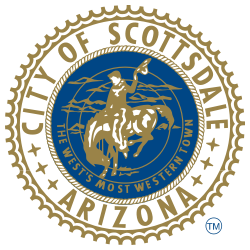In This Issue
What is Renewable Diesel?
Upcoming Events
Other News
Member Spotlight: City of Scottsdale
What is Renewable Diesel?
Renewable diesel is an emerging alternative fuel that could make a big impact on fleet and transportation emissions. It is made from fats and oils, such as tallow or used cooking oil, and is processed to be chemically the same as petroleum diesel.
This renewable fuel has many benefits including a 25% to 75% reduction in carbon intensity compared to its petroleum counterpart, as well as lower nitrogen oxide and particulate matter emissions. It is also a “drop in” fuel, meaning it can be used in any diesel vehicle with no need for engine modifications. Another benefit of this renewable fuel is that unlike other alternative fuels, it doesn’t require special fueling or storage infrastructure. Adopters of renewable diesel can use existing diesel facilities and fueling systems.
Though similar in some ways, renewable diesel is not the same as biodiesel. The processes used to produce renewable diesel is different from those used for making biodiesel. Renewable diesel is also different in that it can be used as a direct replacement for diesel. Biodiesel on the other hand is usually blended with a percentage of petroleum diesel.
A fellow Clean Cities Coalition recently shared a case study on their work with the city of Oakland’s transition to renewable diesel fuel. East Bay Clean Cities Coalition, led a pilot project with the city’s fleet to adopt renewable diesel. Within the program’s first year, the city’s fleet displaced 230,000 gallons of petroleum. Today, the entirety of the city’s diesel fleet runs on this renewable alternative fuel produced from waste cooking oils collected from local restaurants. The city’s pilot program demonstrated the great potential of renewable diesel. Learn more about this case study HERE.
Upcoming Events
Phoenix Electric Vehicle Ride and Drive Event
April 19, 2025, 8am-12pm
The City of Phoenix invites you to the Drive Electric Earth Month (DEEM) Phoenix Electric Vehicle (EV) Ride and Drive on April 19, 2025, from 8:00 AM to 12:00 PM at South Mountain Community College. This exciting event gives you the opportunity to hang out with EV owners, test drive EVs, learn about their many benefits, and see how these vehicles are shaping a cleaner, more sustainable future. EVs help reduce greenhouse gas emissions, save money on fuel, and offer a smoother, quieter ride. This event is part of the City’s commitment to reducing GHG emissions by 50% by 2030 and achieving net-zero emissions by 2050. Register today to drive toward a cleaner, greener Phoenix!
Green Living Magazine’s
Future of Sustainability Event
April 22, 2025, 9am-6pm
Green Living Magazine invites everyone to attend its 2025 Future of Sustainability Event on April 22, 2025. Take part in engaging, hands-on workshops and hear from inspiring speakers, including government officials, public health professionals, and wellness advocates. This is a must-attend celebration filled with fun and learning for the entire community!
Advanced Clean Transportation Expo
April 28-May 1, 2025
Each year, ACT Expo brings together fleet operators, OEMs, and technology providers to spotlight solutions that can help fleets improve efficiency, reduce costs, and stay ahead in a rapidly changing market. With numerous product launches, strategic announcements, and valuable networking opportunities, ACT Expo provides the ideal platform for fleet operators to connect with industry leaders and drive success in a competitive landscape.
Other News
City of Phoenix- 2025 Action Plan Update Public Survey
As part of the comprehensive climate action planning efforts, the City of Phoenix Office of Environmental Programs is embarking on the 2025 action plan updates that will inform the development and next iteration of the climate action plan, food action plan, and energy access plan. An important part of updating these plans is connecting with City of Phoenix residents to understand needs, concerns, experiences, and perspectives. Residents are invited to take a survey as part of city planning efforts. Survey results will shape future efforts, help inform allocation of resources, and improve the quality of life of all Phoenicians.
Take the Phoenix Bus Rapid Transit Survey
Comment Period Ends April 6, 2025
There is still time to take the Bus Rapid Transit (BRT) survey! Now is the time to provide input on how BRT is implemented. There are two options, one with dedicated bus lanes in the curb lane (side-running) and one with dedicated bus lanes in the center of the road (center-running). Your preference will help guide the design of BRT on 35th Avenue.
Please visit the program website at www.meetphoenixbrt.com to learn more about the project and the lane options, then take a brief survey. The comment period ends April 6, 2025. Your opinion matters and makes a difference!
HOV Lane Access for Alt Fuel Vehicles Could End in September
The current provision of a federal code that exempts alternative fuel vehicles in Arizona from the HOV lane restrictions may be expiring. ADOT sent out an announcement explaining that the Federal Highway Administration has informed Arizona that eligible alternative fuel vehicles with only a single occupant will no longer have access to high-occupancy vehicle lanes during restricted times as of Sept. 30, 2025. Currently eligible alternative fuel vehicles include those operating entirely on natural gas, propane, hydrogen, electric and others.
Based on this notice, ADOT has established a website at azdot.gov/HOVRule to help alternative fuel vehicle owners and others prepare for the change.
The city of Scottsdale is ranked as one of the most desirable communities to live and work in and is also a popular tourist destination in Arizona. Scottsdale has also been a long time member of Valley of the Sun Clean Cities Coalition and shares our goal of improving air quality through the use of alternative fuels. Over the years the city has worked to reduce emissions and continues to explore sustainable solutions for its fleet and operations. For example, the city uses Compressed Natural Gas in its solid waste trucks and bus trolleys and will soon be using Renewable Natural Gas in these vehicles for even greater carbon reduction.
VSCCC strives to provide alternative fuel information to all people within our region. In order to increase our outreach abilities we are working with local agencies to share our newsletter and clean fuel resources with an even greater audience. We are proud to partner with the Inter-Tribal Council of Arizona's Air Quality Department, ASU's Sustainable Cities Network and Maricopa County Air Quality Department.
OUR NEWSLETTER IS ALSO AVAILABLE IN SPANISH
Translations done by Diego Montemayor- Diego@cleanairaz.org
